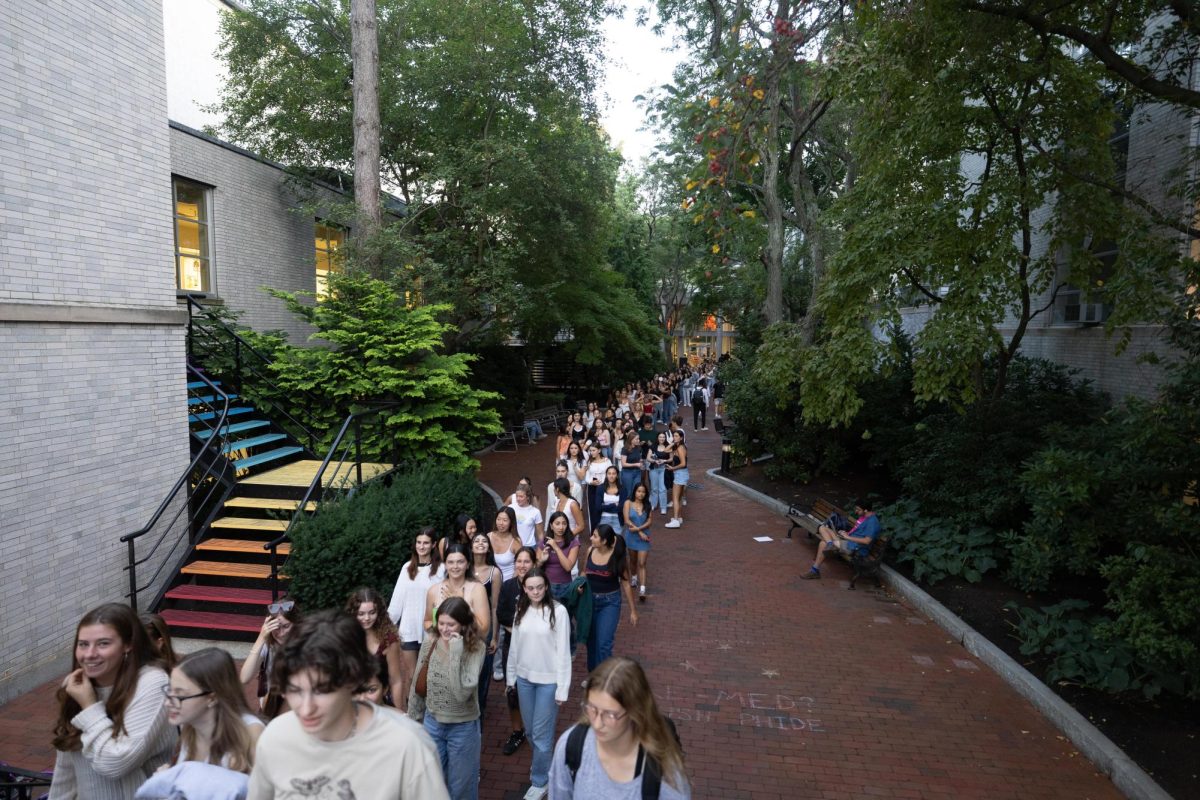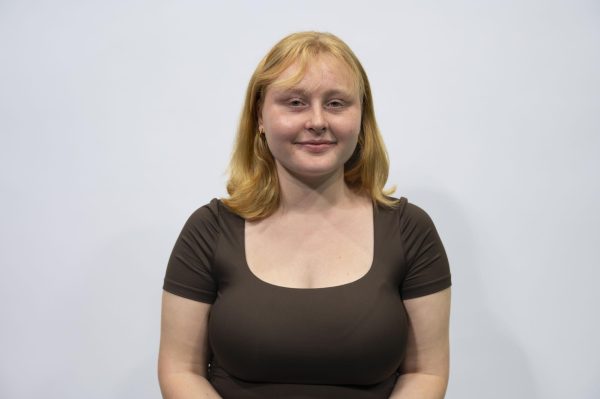Northeastern isn’t typically considered a university that’s big on Greek Life, but that reputation may be changing. This fall, a record number of women-identifying students rushed sororities, citing the community and sisterhood Northeastern’s Panhellenic organizations provide.
Just over 1,000 people participated in rush, the two-weekend process of exploring and joining a sorority, half a dozen sorority members familiar with the rush process confirmed with The News. Students of all years can rush in the fall, but first- and second-years typically constitute the majority of potential new members, or PNMs. The university declined to confirm the number.
“At this time, it’s too early to provide the information you have requested,” Northeastern spokesperson Ed Gavaghan said in an email to The News Sept. 30. The News had requested confirmation of the number of people rushing sororities this fall.
Still, the rise of Greek Life is evident in the university’s Fraternity and Sorority Life Scholarship Reports, published at the end of each semester. During the fall 2022 semester, there were 1,224 active members in all-women sororities that participate in the rush process. In the spring 2024 semester, that number jumped to 1,663.
The percentage of the total female undergraduate population who are members of sororities remained at roughly 15% between spring 2022 and 2024, according to the university’s Common Data Set, but the percentage of first-year students who joined sororities jumped from 7% during the 2022-23 academic year to 9.3% the following year. Sororities decide on how many PNMs they admit based on their acceptance criteria and figure methodology released by The National Panhellenic Conference.
From Sept. 12 to Sept. 23, Northeastern’s fall rush was in full swing, with a record number of people showing up for sorority recruitment. Grace McNamara, a first-year student in the Explore Program, said the experience had been “really nice.”
“Honestly, I [was] scared, but it hasn’t really been that scary,” McNamara said. “Everyone’s been really nice, open and easy to talk to. And it’s been more fun than I thought it would be.”
Rush takes place over two weekends; the first weekend is devoted to all PNMs meeting with members from all different sororities. Afterward, PNMs rank the sororities by their individual preference while the sororities invite specific PNMs to continue the process with them the following weekend. After a second “get to know you” round that weekend, a fraction of the PNMs are officially given a “bid,” or an invitation, to join a sorority.
Arabella Hubbauer, a second-year business administration major who rushed this fall, spent her first two semesters in Oakland and London in the Global Scholars program. She said that spending her first year away added to her desire to rush.
“I honestly think [the rise is] because a lot of people are coming from N.U.in or being abroad and want just more of a community vibe because we’re kind of used to those small cohorts,” Hubbauer said.
Hubbauer also said the rise of “Bama Rush” content on social media platforms like TikTok may have played a small part in the large turnout.
“Bama Rush is kind of taking off,” she said. “It’s just a thing to do and you have nothing to lose.”
Liana Matez, a first-year criminal justice and psychology combined major, said she was “looking for a group of people to be a constant in [her] life, and that aspect of sisterhood” made rushing appeal to her.
“There’s a larger number of sophomores doing it and I do think there’s a need for community after coming back from N.U.in. Not everyone comes back and immediately gets in with the flow of Boston,” Matez said. “This is a really great way to find that community when you don’t necessarily feel that way coming back after being abroad.”
Matez herself did not participate in an alternative admissions program. She said she believes a lot of first-years are interested in joining sororities because students often have a positive experience with Greek Life.
“A lot of freshmen are trying it out [after] hearing from other people how positive of an experience it can be and that sense of community it gives everyone,” Matez said.
At the end of a day of rushing Saturday, Sept. 21, Matez said it was a long day.
It was “a lot of socializing,” Matez said. “It’s all day, so it definitely can be tiring, but it’s really nice to meet different people and to interact with people you’ve never seen before and learn about other people’s experiences.”
On Sept. 23, more than half of PNMs were offered a spot in a sorority, according to an estimate the university provided to The News Oct. 17.
Editor’s Note: This article was updated at 12:00 p.m. Oct. 17 to include additional details the university shared with The News Oct. 17 including an estimate of the percentage of PNMs who received bids and a clarification regarding sorority admittance methodology.
The Huntington News is dedicated to serving the Northeastern University community with original, professional reporting and creating an environment in which student journalists can learn from one another. Support an independent, free press at Northeastern University with your donation today.












